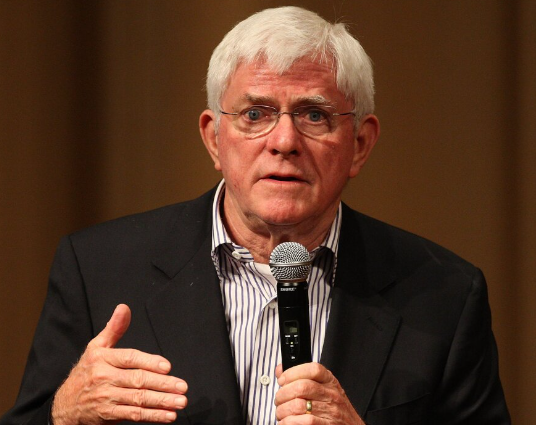Phil Donahue, a pioneering figure in American television, is widely regarded as the creator of the modern daytime talk show. His groundbreaking program, The Phil Donahue Show, not only set the standard for talk shows that followed but also reshaped the way television addressed serious social issues. Over his expansive career, Donahue’s influence extended far beyond the screen, making him a key figure in both media and public discourse.
Early Life and Career
Born on December 21, 1935, in Cleveland, Ohio, Phil Donahue grew up in a middle-class Catholic family. After completing his education at the University of Notre Dame, Donahue began his career in radio and eventually transitioned to television. His early work as a reporter and news anchor provided him with the experience needed to tackle complex social issues, which later became a hallmark of his talk show.
The Phil Donahue Show
Launched in 1967, The Phil Donahue Show (commonly referred to as Donahue) was revolutionary for its time. Unlike other programs that focused on light-hearted entertainment, Donahue’s show was issue-oriented, tackling topics such as civil rights, women’s rights, and LGBTQ+ issues long before they became mainstream conversations. His approach was unique—he would bring the audience into the conversation, often taking questions and comments from viewers, which created a dynamic and engaging atmosphere.
The show’s success was unprecedented. It ran for 29 years, making Donahue a household name and earning him numerous accolades, including 20 Daytime Emmy nominations, with 8 wins for Outstanding Talk Show Host.
Advocacy and Later Career
Donahue was more than just a talk show host; he was an advocate for social justice. His work often reflected his deep commitment to liberal values and his willingness to challenge the status quo. In 2002, after a seven-year hiatus, Donahue returned to television with a new show on MSNBC. However, the show was short-lived, as it was canceled in 2003, reportedly due to his outspoken opposition to the Iraq War. This controversy highlighted Donahue’s steadfast principles, as he remained unafraid to voice his opinions even when they were unpopular.
In 2006, Donahue co-directed the documentary Body of War, which focused on a young Iraq War veteran. The film was well-received and further cemented Donahue’s legacy as a voice for the voiceless.
Awards and Recognition
Throughout his career, Phil Donahue received numerous awards, including the prestigious Peabody Award in 1980. In 2024, he was honored with the Presidential Medal of Freedom, the highest civilian award in the United States, for his contributions to television and his enduring impact on American culture.
Personal Life
Phil Donahue was married twice. His first marriage to Margaret Cooney produced five children but ended in divorce in 1975. In 1980, he married actress Marlo Thomas, and the couple became one of the most beloved pairs in the entertainment industry. They did not have any children together, but their partnership was a strong and enduring one, often collaborating on various charitable endeavors.
Death and Legacy
Phil Donahue passed away on August 18, 2024, leaving behind a legacy that continues to influence television and journalism. His willingness to address controversial issues and his innovative approach to audience participation set a new standard for talk shows, one that many have tried to emulate but few have matched. His career was a testament to the power of television as a tool for social change, and his contributions to the medium will be remembered for generations.
Phil Donahue’s life and career were characterized by a deep commitment to exploring and addressing the most pressing issues of his time. He was not just a television host but a pioneer who used his platform to advocate for change. His legacy is a reminder of the impact that one person can have on society through the power of media.





